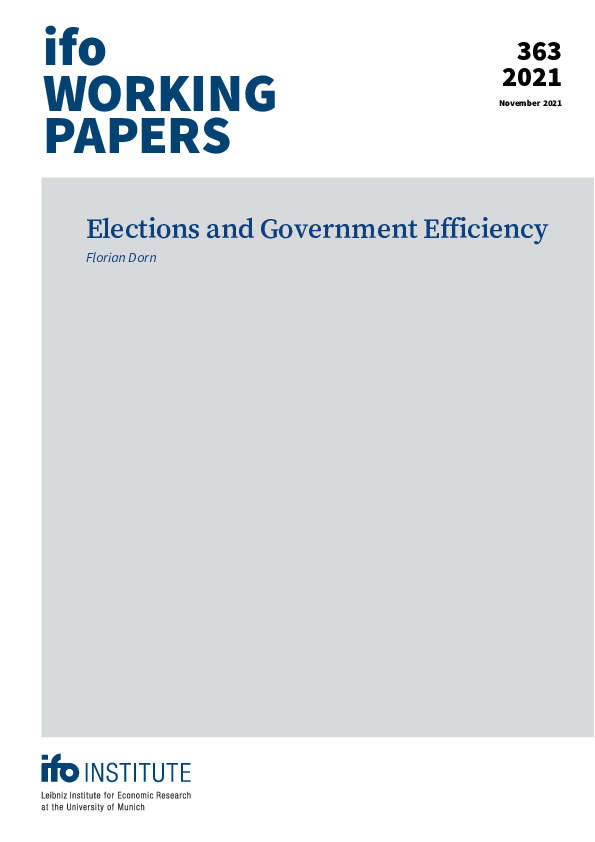Elections and Government Efficiency
ifo Institute, Munich, 2021
ifo Working Paper No. 363

Politicians are expected to influence policy outcomes in a way to gain electoral advantage. There is, however, a pending question whether efficiency in the provision of public goods and services is affected by strategic behavior. I examine how electoral cycles influence local government efficiency by using OLS fixed effects, event study, and instrumental variable estimations in a large balanced panel of around 2,000 municipalities in the German state of Bavaria. Cost efficiency is estimated by employing a fixed effects semi-parametric stochastic frontier analysis. The results show that electoral cycles increase government efficiency in election and pre-election years by around 0.75– 0.85 %. The effect is larger when executive and council electoral cycles coincide, and when incumbent mayors run for office again. My findings suggest an efficiencyenhancing effect of elections at given institutional conditions.